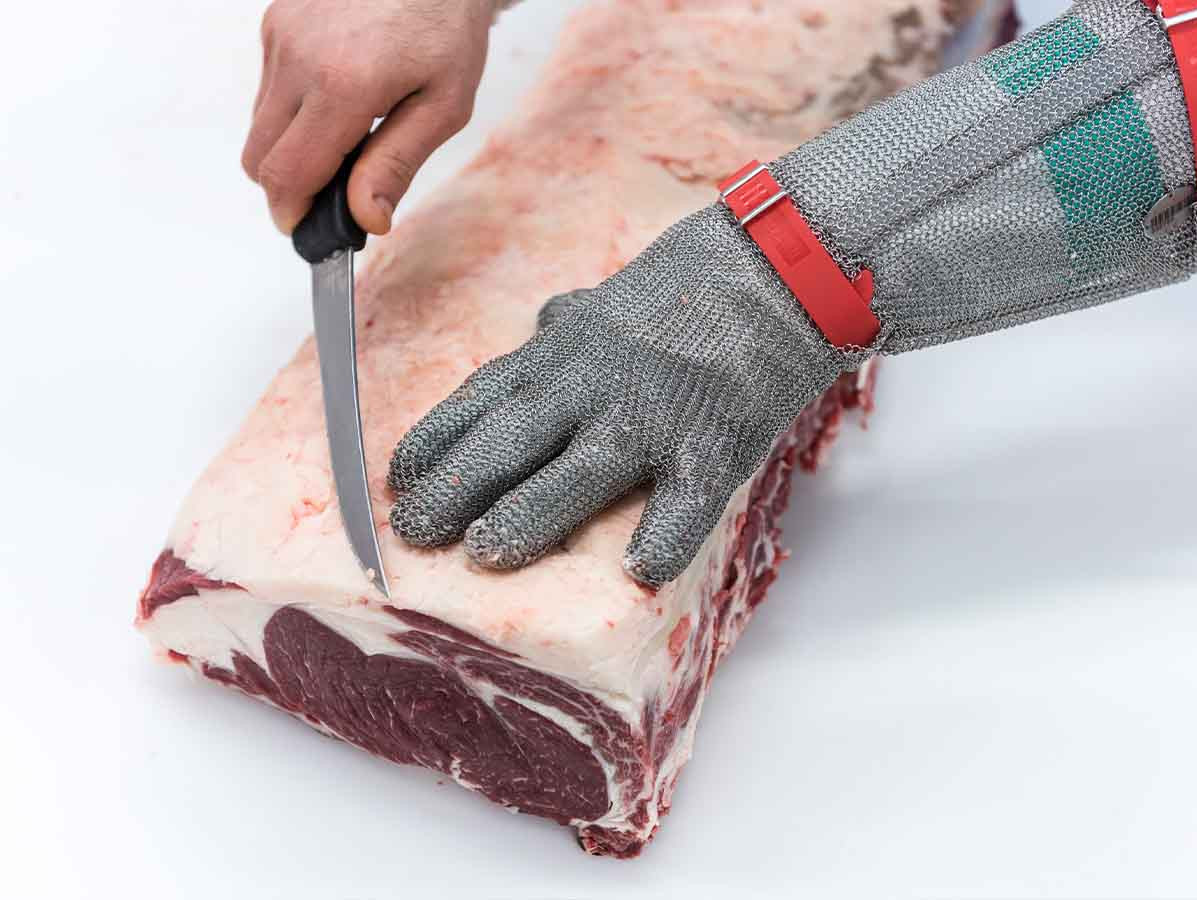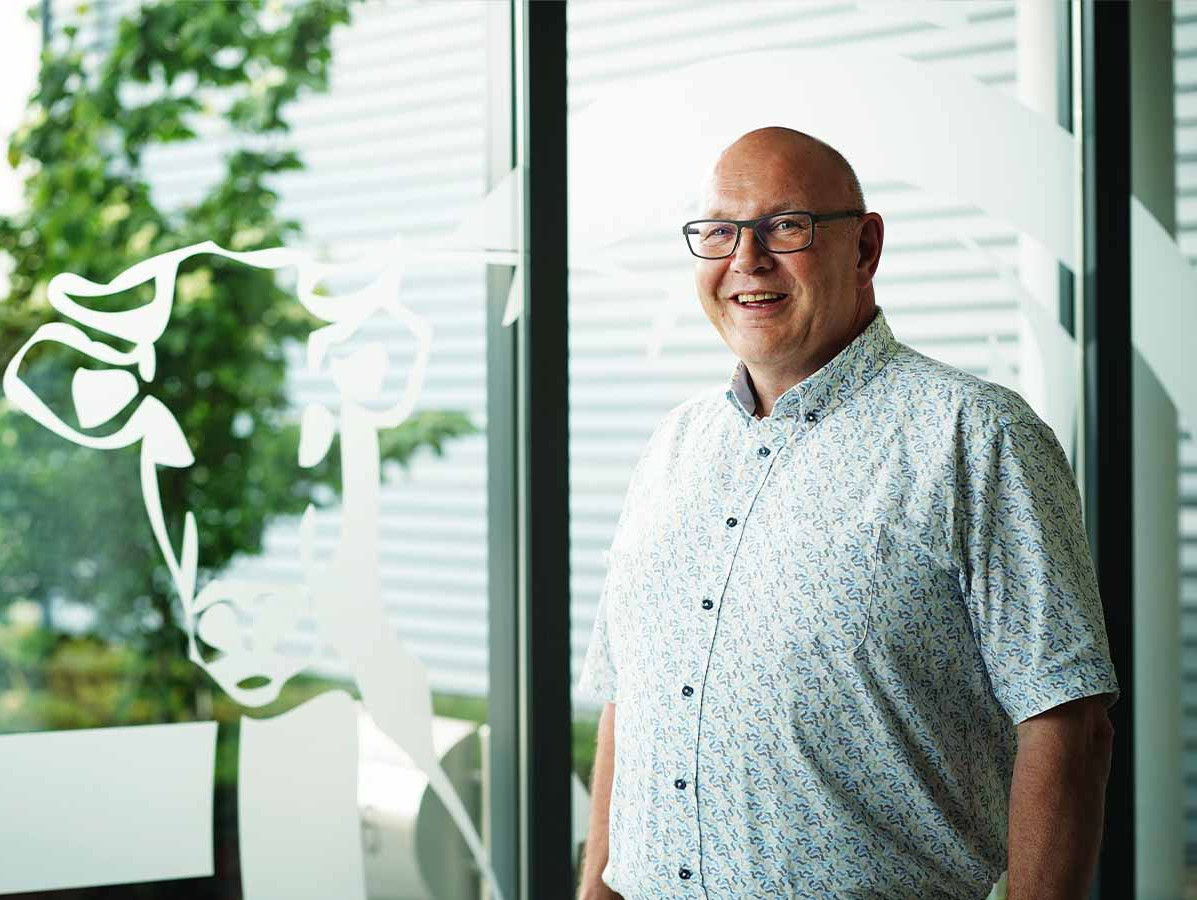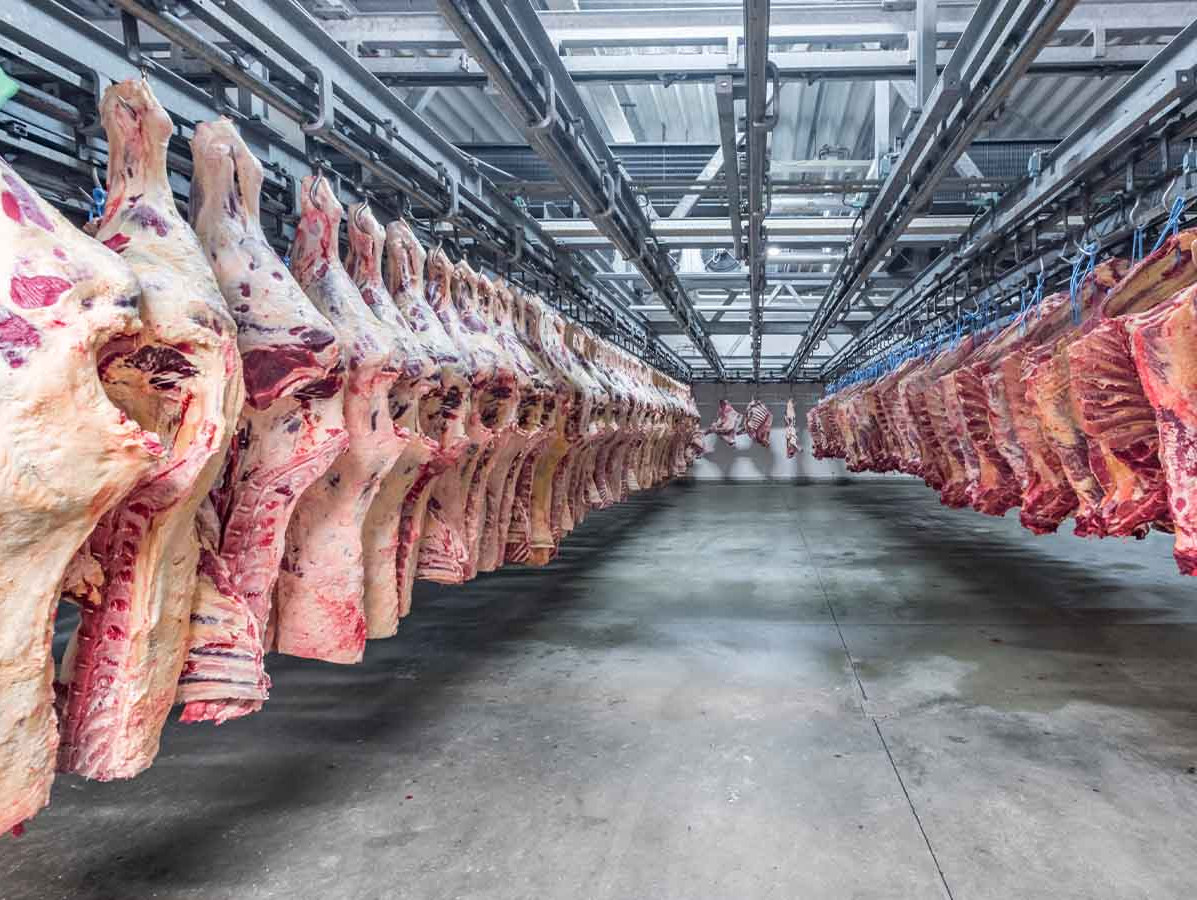
At Hogeslag-Olst, quality is a cornerstone, both in product and partnership. This dedication is not just for customers, but also for suppliers and team members. Their mantra? "It's a collective effort."
This beef producer supplies meat processors in four different markets. To suppliers for the catering, retail, meat processing and grinding industries. "As a raw material producer, we're all about delivering added value," says Operations Director Rudi Holleboom. "Quality isn't just about the beef; it's about meeting customer expectations. We’re meticulous about selecting the right meat cut for the right customer, focusing on mid to premium grade cattle, leaving the ultra-luxury segment to others. Our diverse range allows us to tailor offerings to our clients' specific needs."
Founded in 1921 by J.G. Hogeslag in Den Nul, Hogeslag-Olst began as a slaughterhouse for cows and calves. In 1991, Erik and André Hogeslag took over from their father, pivoting the business to focus solely on carcass processing. In 2001, they acquired the former Dumeco pig slaughterhouse in Olst, transforming it into a state-of-the-art beef carcass processing plant. Their growth trajectory has been steady ever since. "We're approaching a milestone of processing nearly 100,000 carcasses annually," Rudi notes.

Rudi Holleboom ©Naomi Heidinga
Most of their processing involves dual-purpose cattle breeds like Simmentals and Holsteins, predominantly imported from regions like the Alps. The animals are slaughtered in the country of origin. "These animals are in good condition, producing milk does not detract from that.” Rudi emphasises the quality of these animals. "They're robust and well-muscled with a touch of fat – exactly what makes the meat so appealing. It's this kind of beef you’d find in restaurants. While retail might lean towards leaner cuts, hospitality prefers beef with a bit more fat, which truly enhances the flavour."
Food safety isn’t just a checkbox for Hogeslag-Olst; it’s paramount. "Safety isn't negotiable. Ensuring this standard isn’t just an internal matter – it extends to our suppliers," Rudi elaborates. "We're ramping up checks, conducting frequent bacteriological tests, including with and from our suppliers. Our facility and processes are designed for optimal food safety. From day one, every team member is trained in hygiene. It’s a culture of perpetual vigilance and continuous improvement here."
Managing a diverse workforce does pose its challenges. "Many of our employees hail from various countries, which means multilingual instructions are essential. Most supervisors share the same background and can communicate effectively. While automation plays its part, meat cutting remains a craft. We ensure continuous training, maintaining consistent quality. For us, investing in our people is crucial. Ensure they enjoy what they do and treat them with respect – it goes a long way."

Rudi acknowledges the uncertainties in their industry, especially concerning environmental concerns and shifting consumption patterns. Yet, he remains optimistic. "As long as dairy remains in demand, we'll have cattle to process. Market shifts are inevitable, with livestock distribution across Europe changing and a likely decrease in Dutch livestock. But we're poised to adapt. With a potential decrease in meat consumption, the emphasis will shift towards quality. The market always finds its equilibrium," he says with a chuckle. "Survival belongs to those who adapt smartly, and I'm not concerned about our position."
"Our output has doubled in the past decade," Rudi continues. "While growth isn't an end in itself, we do have room for more. Every facility upgrade takes this into account. Our focus remains on sustainable growth, strengthening the core while enhancing relationships with our clients, suppliers, and staff. The quest for perfect collaboration is ongoing, and we’re always scouting for improvement avenues. It's probably why the average age of our managers is just 33. We're future-focused, driven by quality."
Source: Vakblad Voedingsindustrie 2023